I first became acquainted with the artwork of Tabitha Vevers through my mother-in-law, who gave me a series of three small works – birds eggs in architectural frames. Later I saw one of her gilded shell pieces at their home in Cape Cod – a disturbing but compelling image painstakingly painted on the interior of a seashell. That summer I had the pleasure of dining with Tabitha, along with a number of other Provincetown artists, including her husband, photographer Daniel Ranalli, and her mother, artist Elspeth Halvorsen, who constructs dioramas. Tabitha’s dad, the late Tony Vevers, is a well-known painter. It was a fun evening, and ever since, I’ve followed her work.
I missed Tabitha’s spring show at the De Cordova, but I plan to pop into the DNA Gallery in Provincetown this week, where a group show with her work just opened. Her depictions are not only incredibly skilled and fantastically creative, but often cerebral. (Not surprising, since she graduated from Yale.) The scale of her work is small, but the pieces are not the least bit precious. I find the gold leaf adds to their surreal appeal. Tabitha creates works in series. I included a bit about each below, along with images.
Eden Series
The impetus for this series came from the confrontation over teaching the Theory of Evolution in schools.
Trouble in Paradise
* * *
Shell Series
Tabitha describes this series as both a nod to her Cape Cod childhood and a challenge to see if she could paint shells as an adult without creating kitsch. She’s often chosen to paint on unusual materials if they resonate with her ideas, but with the Shell Series it’s the other way around—the imagery has grown out of the medium itself. These works draw on mythology and folklore.
Reunion
* * *
Lover’s Eyes Series
This series plays on the convention of eye portraiture during the Georgian period of the late 18th century. Such paintings were commissioned as secret gifts for illicit lovers. These excerpt images of women’s eyes from well-known paintings, but give primacy to the gaze of the model looking out, rather than the male gaze of the original artist’s eye.
La Magdalena (after Titian)
Young Woman (after Girolamo de Benvenuto)
Inka (after Chuck Close)
* * *
Flying Dreams Series
Tabitha interviewed over two hundred people about their flying dreams to create this series. The paintings are painted on metal in the style of Mexican devotional paintings (ex-votos), and include a description of the dreams in the dreamers’ own words. The scenes are depicted as described, not as interpretations.
Flying Dream (Claire)
Flying Dream (Mary)
Flying Dream (Water Ballet)

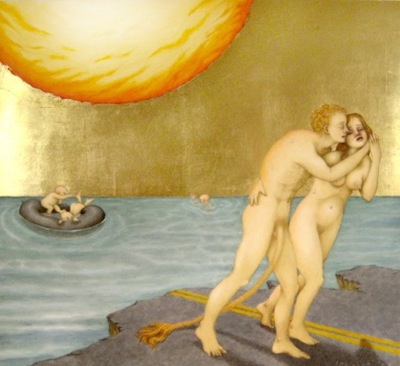
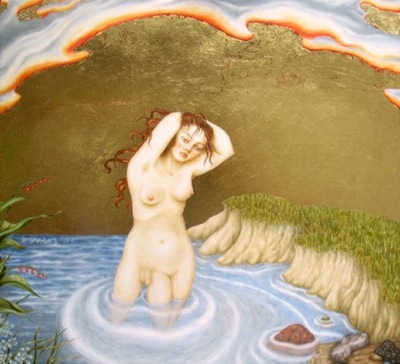
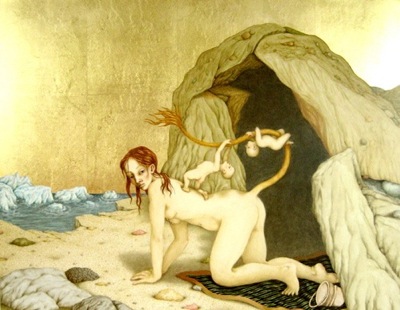
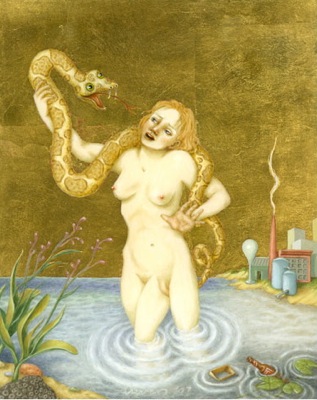
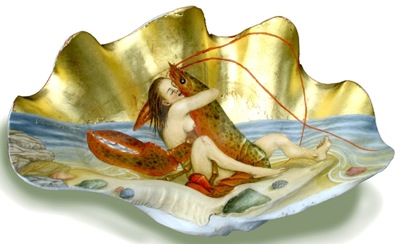
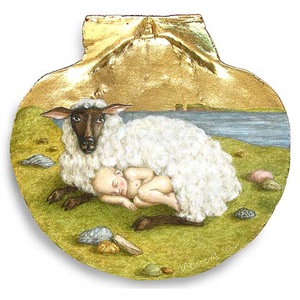
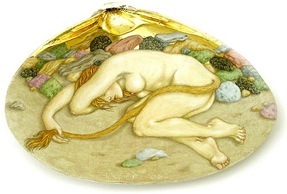
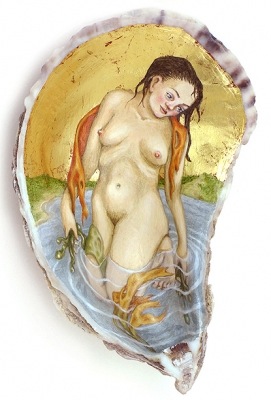
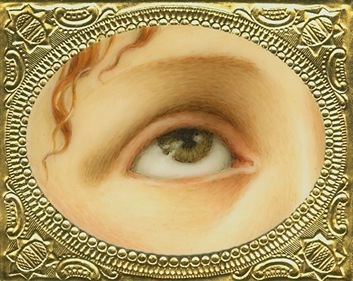
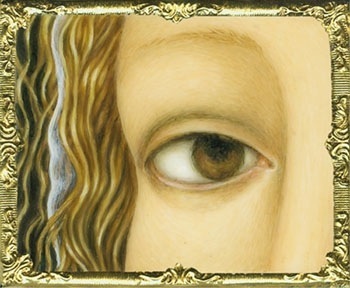
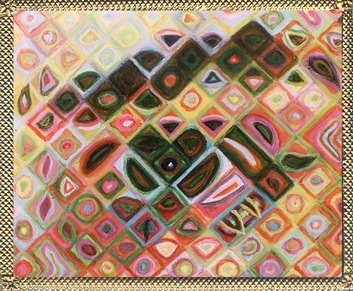
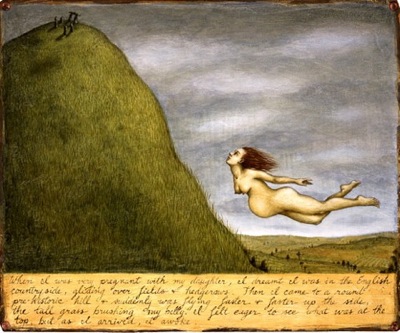
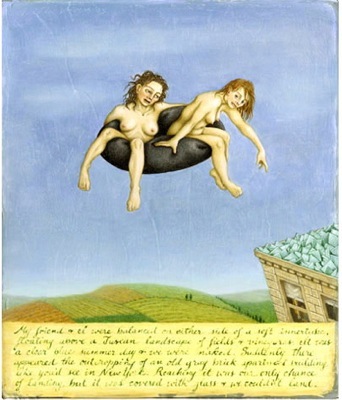
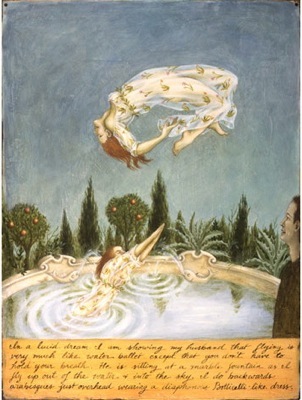
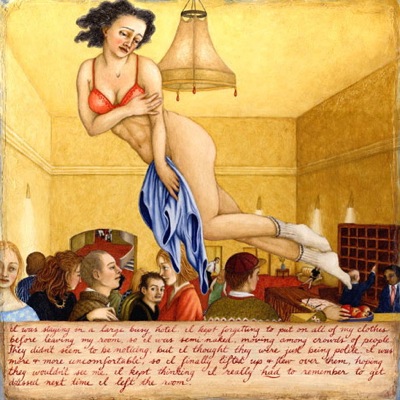

 Follow StyleCarrot on Twitter
Follow StyleCarrot on Twitter
